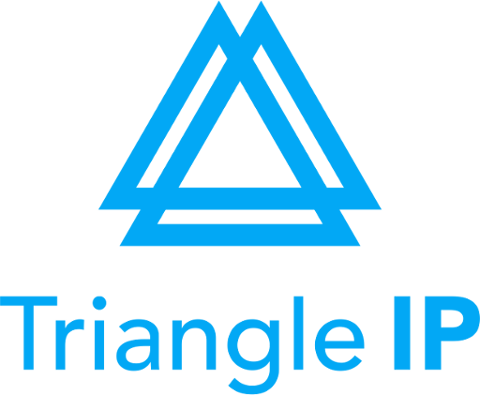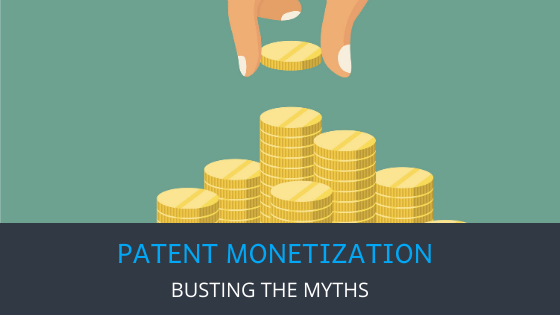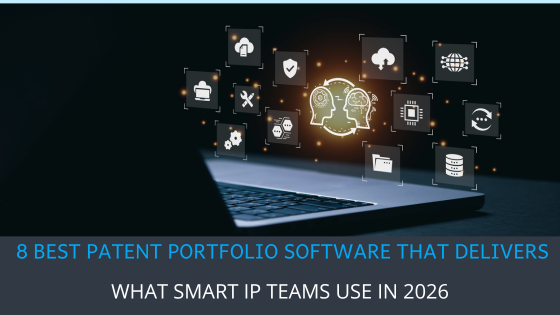People buy businesses. They don’t buy patents. The news will tell you about the one guy who won the lottery but never about the thousands who bought tickets for nothing. To truly grasp the essence of this concept, exploring the relationship between patents and investment decisions provides a clearer perspective. Hollywood will share with you success stories of idea men who sold an idea for millions. Not much is ever said of those whose ideas didn’t convert to big money. Naturally, the notion that most people have is that an idea means money. However, ideas backed by businesses means money. People buy businesses. Thus, patent monetization is synonymous with building a business around it.
Why Patent Monetization?
The most cited example of a company that has aced its patent monetization game is IBM. Looking into global patent portfolio strategies can reveal how companies like IBM have succeeded in this arena. They make tremendous amounts of money by licensing their patents. In 2019 alone, IBM was estimated to have earned US$367 million in revenue on patent licensing activities. They can do this because they have amassed one of the largest patent portfolios that exist today.
The IBM example is tantalizing as a patent monetization example. But really, how many IBMs can there be? And how many years does it take for a company to get there?
We know each granted patent costs somewhere between USD 50000 on average and annuities are a further significant expense. As a company, you may choose to monetize your patents by:
- Enforcement, or
- Sale

Is Enforcement Really A Way to Go?
Licensing
Patent licensing is a form of patent enforcement. Licensing feels like a threat to most companies. This puts companies on the defensive and the instinctive reaction is to countersue. More often than not the licensing approach leads to courts and litigation. Walking down this path means money spent in legal fees, and a possible settlement. And spending money becomes the antithesis to your primary goal of monetization.
A lot of companies shy away from monetization by licensing because of the risk of a countersuit.
Reduce The Risk Of Countersuit While Licensing
Here are a few things you can do to reduce the risk of countersuit while licensing.
- Use patents from nascent areas within your corporation
- Roll patents into your Business Sale Package
Use Patents from Nascent Areas Within your Corporation
A nascent area is one where
- You no longer practice
- You no longer sell products, or
- The division is shut down
but you still have existing patents.
Licensing is a great approach to monetization in nascent areas because it nullifies your risk of litigation. With no products backing your patents, businesses are more likely to invest and less likely to sue. And even if there is a chance of a lawsuit, you have nothing to lose because you no longer sell the products in these areas.
Must Read: Patent Based Lending- Leading U.S. Banks Considering Patents as Collaterals
Roll Patents Into Your Business Sale Package
Every business is built for sale; it depends on what’s the price the buyer is willing to pay. This makes it critical to protect your intellectual property early on, ensuring its value is maintained for potential sale or monetization. Whether your business is booming or you are looking to shut it, roll your patents into the business package when you sell it. This also holds true for a single factory or product line. This will boost the chances of the sale of your business and meet your goals of monetization.
Investors find it easier to comprehend the purchase of a business that has a potential revenue stream. Patents in the business are a great lure for potential investors.
Patent Monetization by Sale | Be Strategic, It’s Arduous
Sale is less threatening when compared to licensing a patent or patents. Enforcing a patent comes with its set of challenges – more often than not, lawsuits. Sale, on the other hand, is a clean cut that comes with no risk.
But where does one sell a patent and for how much? Who buys them and what is its marketplace?
There’s good news and there’s bad news. Let’s give you the bad news first:
There was a time, not too long ago that patent portfolios were bought and sold with 7 figure transactions. Those times have now changed. Today, these figures have dropped to 5 figure transactions, on a good day.
The good news is patents are for businesses. And people buy businesses. Patents can still be bought and sold today, just not how they used to be earlier. Today, patents and businesses are a package deal. And you can sell these anywhere you like, but the legal department is not the best place to go.
There are circumstances where you will be able to sell a patent without a business. However, these circumstances are rare. In 2012, Yahoo sued Facebook for infringing a bunch of their patents relating advertising, privacy, customization, messaging and social networking. Facebook countersued Yahoo with specific patents, most of which they acquired, almost overnight. It usually is only circumstances such as these where businesses are willing to buy just patents. And waiting for these chances to come by is like waiting for a month of Sundays.
The best and probably the only effective way to monetize a patent is to build a business around it. When you are selling just a patent, you are selling a right around an idea for a business. People aren’t used to buying that. When you back your patent with a product and a business though, everything changes.
Selling To A Business
As a thumb rule, unless circumstances are exceptional, selling a single patent is impossible. Patents are best sold as families. So, who do you approach when you are looking to sell a patent portfolio? It’s best to take a patent portfolio to a business development team in an organisation. Our advice would be to prefer the businessmen over the lawyers. Lawyers are wired to deflect risk. Businessmen, they enjoy risk and innovation.
Patent Brokerage
There are a bunch of patent brokerage firms. These work through patent brokers who represent patent buyers and sellers by serving as intermediaries to facilitate patent sales. They help throughout the process of patent transactions including the initial identification of suitable patent assets to sell, selection of sellers, screening of patents and identification of important patents and claims.
However, the brokers do not show any interest in single patent deals. They prefer selling patent portfolios altogether so that they can make a decent amount of money in the brokerage.
Let’s Sum It Up
Patent monetization is a tantalizing prospect. Reading stories of companies that have made millions from patent sales is exciting, hopeful and tempting. But like most things, there’s a lot more to those big numbers than meets the eye. As someone who is looking to monetize their patents, it is important to be fully aware of the challenges that you may face. Here are some pointers and reminders for you.
- In the traditional sense, patent monetization requires you to have a large patent portfolio. This may take years to build and a considerable amount of resources to maintain. As a large company with resources, this may be an option. Be reminded though, that you are looking at a long timeline here.
- You can choose to go down the enforcement route when monetizing. This means you can license your patents to businesses in the marketplace. Licensing can backfire with a countersuit as a consequence. Be mindful when going down this route. Choose strategically – patents from nascent areas or inactive areas in your business.
- When looking to sell, remember – patents without businesses have little to no value. If you are looking to monetize your patents, build a business around them. You can choose to sell them at any stage this way. Either as a fledgling business or as a spin out.
- The business development teams in organizations are your go-to people for sales. Avoid sales through the legal team because they will be more likely to avert risk rather than take it.
- When looking to sell patents, look to sell in bulk. Sell your patents as a family. As a general rule, patents don’t sell in isolation. You can choose to make sales to business directly or through patent brokers or marketplaces.
In summary, monetizing patents is not an easy task. There are costs involved through the process of monetization as well. However, if you have a good strategy in place, transactions can be very fruitful. Thumb rule: Selling patents with businesses will be a win-win situation for all concerned.
Note: The preceding is general business advice and not to be construed as legal advice. IP laws vary by country and retaining licensed legal counsel is advised to confirm this information. Any expressed or implied opinions are of the author and do not necessarily reflect the views of Triangle IP or any other entity who might be associated with the presenter. We hope this content is helpful to you, but should not be relied upon without confirming the advice and accuracy with local legal counsel. Any comments or inquiries are not confidential so please discuss your issues directly with counsel.





